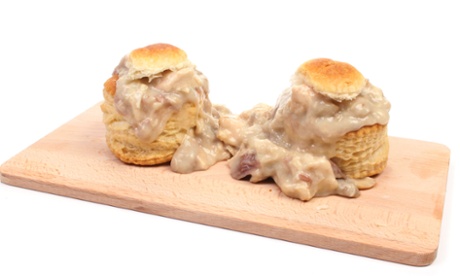
A while back I received an email accusing me of snobbery. Just another day at the office, then. My crime that day was to have said during an episode of MasterChef that a dessert “looked like the sort of thing served at a cheap wedding full of regret held at a hotel on a ring road”. My correspondent’s stepdaughter had apparently just got married at a ring road hotel and it had been lovely. “I’m sure it was,” I replied, “but was it also full of regret? Because if it wasn’t, it isn’t covered by my critique.” I may be a snob, but I’m a precise snob.
The touchiness shouldn’t have surprised me. When it comes to food at weddings people are like that. A wedding is one of life’s great set piece events, upon which the compass flickers. Accordingly everything about them must be perfect, even when everything plainly isn’t. And now it’s June, and wedding season is upon us. For the next few months many of us will be putting on suits and frocks smelling of dry cleaning fluid, and tramping into baggy marquees where we will eat some of the worst, most overpriced food ever inflicted upon us by people who claim to be our dearest friends. And then, regardless of how dismal it all was, we will loudly proclaim the opposite. In the coming months more lies will be told about the quality of lunch and dinner than in the rest of the year put together.
We are meant to be experiencing a British food revolution, and in many ways we are. There are better restaurants than ever before. But in the business of mass catering we are generally awful. I say generally. Obviously, if you run a catering firm and you’re limbering up to complain, I don’t mean you. You’re brilliant. Likewise, the food at your wedding was obviously fabulous. It’s everyone else.
Everyone else is responsible for dry canapés that taste only of margarine and complacency. Everyone else is responsible for desiccated lumps of yesterday’s pre-cooked chicken the colour of an old stained sink; for sauces that could creosote fences and vegetables so overboiled you could suck them through a straw; for cream desserts that have split, and overbaked tarts with pastry like walnut shells. And the cost! I only use exclamation marks for shouting, which is what I’m doing. THE COST! Despite economies of scale, caterers charge more for this dismal crud than the price of a quality restaurant meal and rising. Why are they allowed to get away with it?
Precisely because it’s a special event, and nobody likes to admit one of those isn’t actually that special. Plus, avoiding the pitfalls of mass catering dreariness requires a certain radicalism: the willingness to do away with the awful formally plated main course, to sack the poor exploited teenage waitresses and instead concentrate spend on the cooking. The problem is that weddings generally involve young people and for all their youthful irreverence, young people can be rather “small c” conservative. A wedding is a grown-up event, and they have a mythologised notion of what grown-up looks like, which includes a marquee and chicken the colour of a stained sink.
Recently the savings expert Martin Lewis’s website said that, when booking a wedding reception at a hotel, tell them it’s for a party rather than for nuptials. Apparently hotels charge more the moment they hear it’s a wedding. This is good advice. It won’t stop the food being crap, but at least it won’t cost you as much.
Tell us about your wedding-day catering disasters and triumphs below

